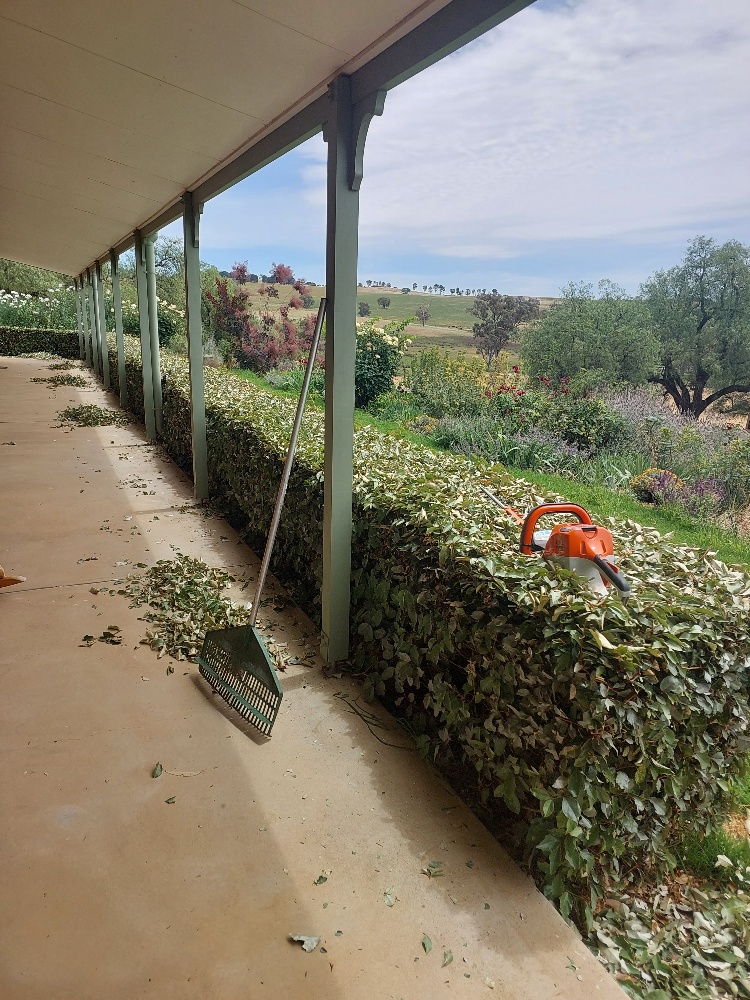
03 Dec Why is Gardening so Good!
For centuries gardens have provided a place to grow food, a place to study botany and nature, a place to grow lifesaving medications and a place to be a sanctuary for contemplation and meditation. Overall, the task of gardening offers an holistic approach to improving mental well-being, providing a range of emotional, physical, and psychological benefits that can positively impact one’s overall quality of life. If you are a gardener you really will probably already understand all the benefits of gardening and being immersed in nature.
I know the simple act of pulling out a few weeds or digging a hole can help me on so many levels. Having a moment of peace to get your hands “dirty” can give you time to gain clarity on a problem or to de -clutter your mind from endless matters floating around in your head.
You don’t have to own a garden to be able to use nature as a natural way to de- stress. Make time to sit on a bench in a park or lay down on the grass in the shade of a tree for a few moments. Take some deep breaths of fresh air. This gives you the opportunity to reconnect with nature. The practice of forest bathing or grounding or earthing are all terms I have heard used in the media. They all have the same aim to connect with nature. Spending this time in a garden environment provides you with an opportunity to connect with nature. Being surrounded by greenery and natural elements can have a soothing effect on the mind and improve your well being however there are so many more advantages to gardening, here are a few that I think make the practice of gardening even more worthwhile.
Some of the many advantages of gardening are;
*It is proven to reduce stress – Engaging in gardening activities, such as planting, weeding, and watering, can help reduce stress levels and promote relaxation. The repetitive nature of gardening tasks can have a calming effect on the mind.
Gardening has been shown to lower cortisol levels, a stress-related hormone, leading to reduced feelings of anxiety and tension.
*Improves your mood – Gardening has been shown to positively affect mood and decrease symptoms of depression and anxiety. The physical activity and exposure to sunlight during gardening can boost the production of mood-boosting chemicals in the brain.
*Give you a sense of accomplishment – Watching plants grow and thrive as a result of your care can provide a sense of accomplishment and boost self-esteem. Successfully nurturing a garden can instill a feeling of pride and satisfaction.
*It is the original mindfulness practice – Gardening offers an opportunity to practice mindfulness by focusing on the present moment and paying attention to the sensory experiences of being in the garden. You are able to draw upon all five senses such as touching the soil, smelling the flowers, hearing the local fauna, tasting a home grown fruit or vegetable and visually noticing the colors and textures of plants. Gardening engages sensory stimulation and relaxation.
*Physical exercise -Engaging in gardening activities such as digging, planting, and weeding provides a form of low-impact physical exercise, which can help improve fitness, stamina, and overall physical well-being.
*Cognitive stimulation -Planning and maintaining a garden involves problem-solving, decision-making, and creative thinking, which can help keep the mind active and engaged. It can also help in improving memory and cognitive function.
*Social Interaction-Gardening can be a social activity, providing opportunities to connect with other gardeners, share experiences, and foster a sense of community. Social interaction is important for mental well-being and can combat feelings of isolation.
*Therapeutic benefits -Gardening can serve as a therapeutic outlet for processing emotions, thoughts, and experiences. It provides a space for self-reflection and emotional expression. The act of nurturing plants and watching them grow can be emotionally rewarding, offering a sense of purpose, nurturing, and connection.
*Gives a sense of purpose-Maintaining a garden gives individuals a sense of purpose and responsibility, which can contribute to a greater sense of meaning in life.
*Creativity and Expression-Designing and arranging a garden space allows for creative expression and personalization. This creative outlet can contribute to a sense of fulfillment and self-expression.
*Environmental Connection -Gardening fosters a sense of responsibility and connection to the environment, which can contribute to a greater sense of purpose and fulfillment.
*Spiritual Connection- For many, gardening fosters a spiritual connection with nature, serving as a source of comfort, tranquility, and reflection.
My own garden is my retreat, my sanctuary, my science lab, my classroom and my reference book. It is the place where I learn something new everyday not just about nature but about myself.



